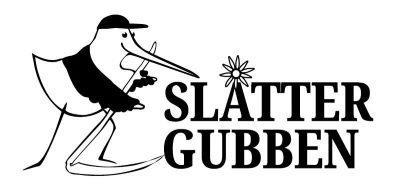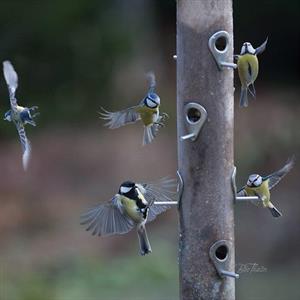25kg - Sunflower chips
It corresponds to about 50kg of sunflower seeds. The birds' definite favorite.
- In stock
Description
Many of us have previously paid to get sunflower shells in our gardens!
The shells normally account for about half of the weight of regular sunflower seeds. Just think of the transport savings when the shells stay in Bulgaria and are used as biofuel instead.
Whole or chopped sunflower seeds are an irresistible bird food for almost all birds except the yellowhammer. Greenfinch, hawfinch, great spotted woodpecker, blackbird, goldfinch, bullfinch, nuthatch, and all tits all prefer sunflower seeds. Today, there is an unimaginable amount of imported sunflower being used to feed birds. Before 1950, hardly anyone fed birds at all, yet there were significantly more of most bird species, both those coming to feed stations and migratory birds.
Bird feeding is nice for us, but not really important for the birds themselves. The least we can do is choose organic, at least that’s what I think. Is it expensive? Set a budget for what you can afford and ration it out. Keep in mind that you can feed much more generously with cheaper field seeds on the ground, while still offering a little sunflower in the feeders.
For a good, versatile feeding that suits all birds, you can have whole or chopped sunflower seeds in bird feeders. Complement this by scattering field seeds from Lunden on the ground around the bird feeding station to make the yellowhammers happy. House sparrows, tree sparrows, rooks, nutcrackers, pigeons, and more also enjoy the field seeds on the ground. Make it even more interesting with small field seeds, which are particularly liked by finches in spring.
There are three advantages and one disadvantage to chopped sunflower seeds.
- They are much cheaper.
- More birds with weaker beaks can easily eat them. This is especially true for blackbirds, robins, treecreepers, greenfinches, and chiffchaffs. Sometimes, you might need to help treecreepers by wedging sunflower seeds into the bark of a tree or mixing them with a bit of butter or melted suet and applying it. Once they learn, they’ll take seeds from the base of the tree!
- They last longer – great tits and blue tits, which take a whole sunflower seed, fly off to a branch and break it to get better bites. There’s a high chance they’ll drop quite a bit on the ground. If there is an unlimited amount to take, they have no reason to search for the fallen pieces.
The disadvantage is that they can stick a little more easily in narrow feeders in warm and humid weather – however, we have many customers, even in southern Sweden, who always only buy the chopped ones. Often, a simple tap on the feeder helps if it gets clogged.
Our chopped sunflower seeds are organically grown in Bulgaria and result in transport emissions equivalent to 0.61 kWh/kg (0.17 kg CO2 eq./kg) from the farm to our warehouse.
Read more about these calculations here.
Labeled as EU Organic.
Certified free from Ambrosia seeds. Ambrosia, or ragweed, is an invasive weed that we don’t want in Sweden, and the seed mainly comes with American sunflower seeds.
Controlled cadmium levels. Our supplier reports that they source from many different farms and often conduct tests. The levels vary but are usually between 0.18 and 0.37 mg/kg. The EU’s allowable limit for food is 0.5 mg/kg.



